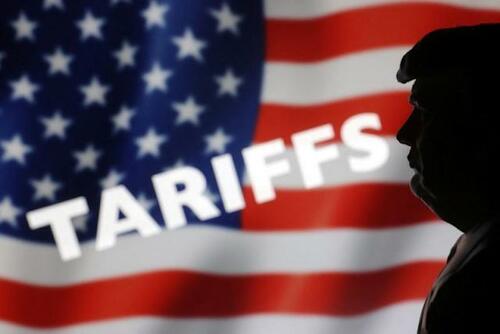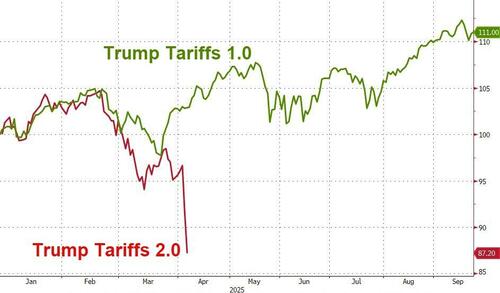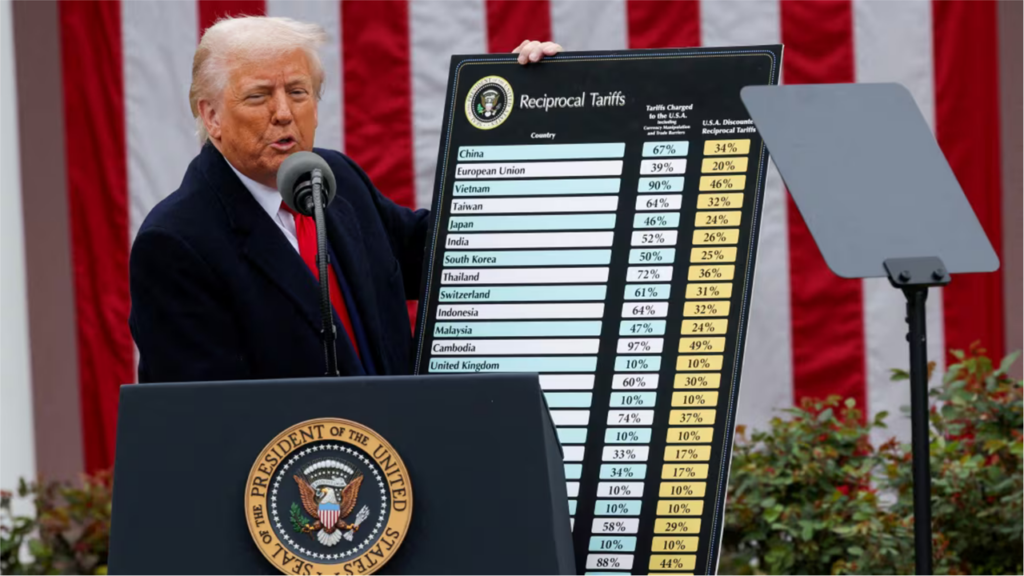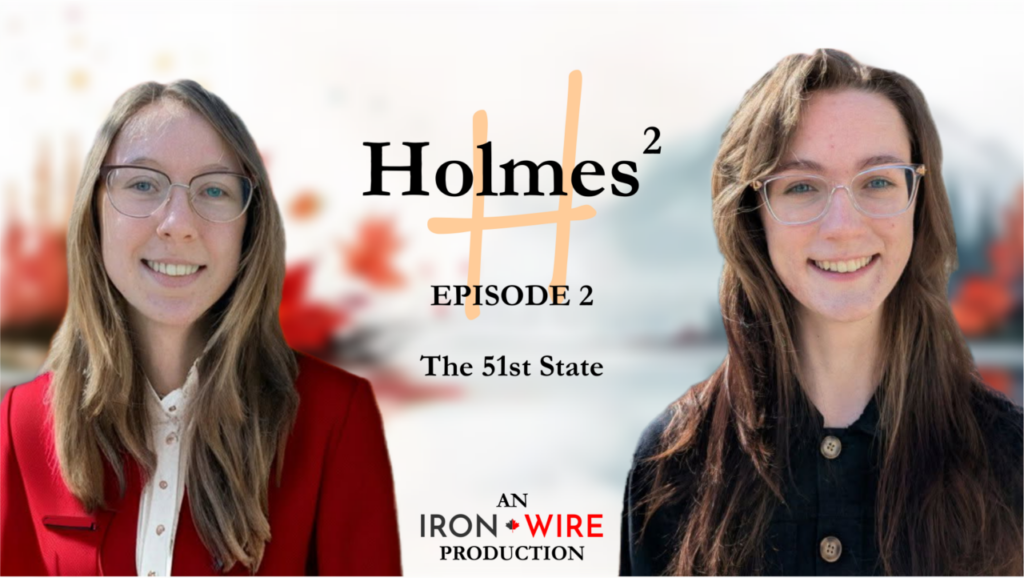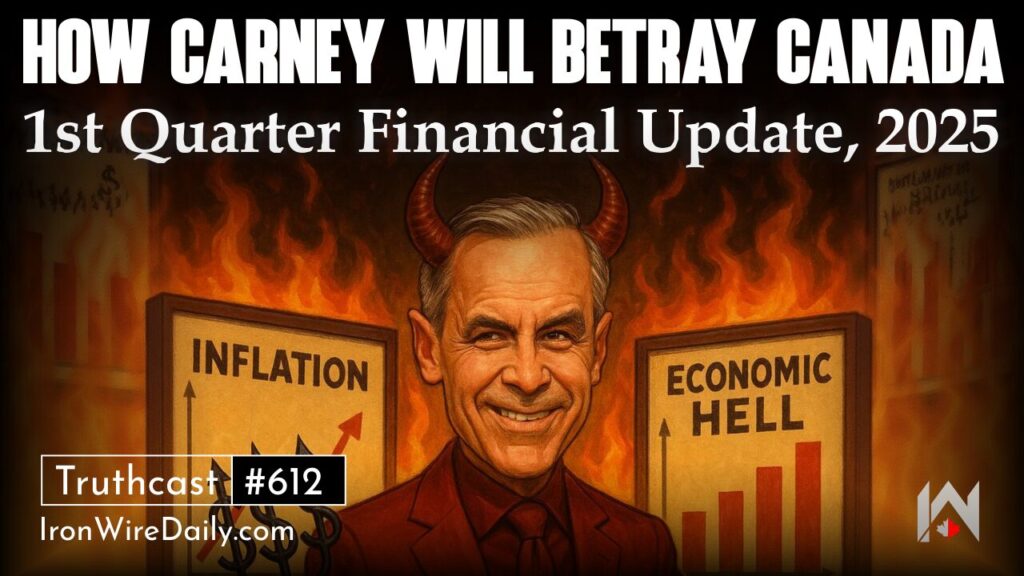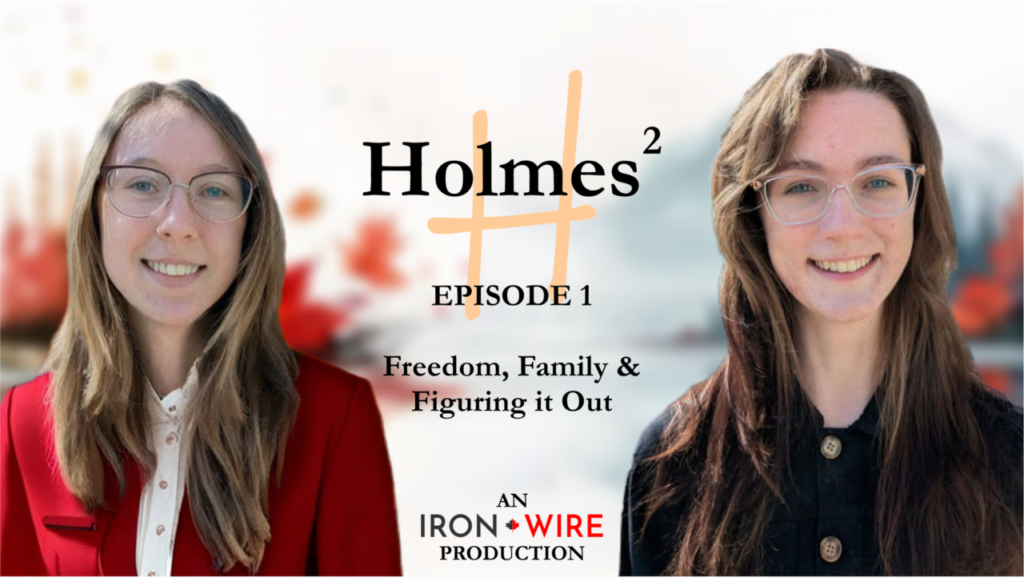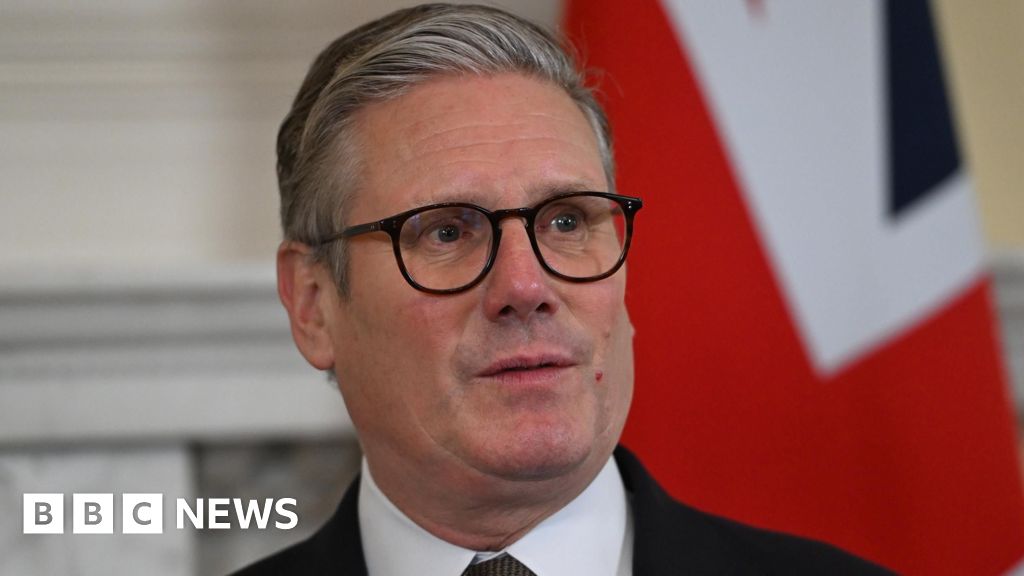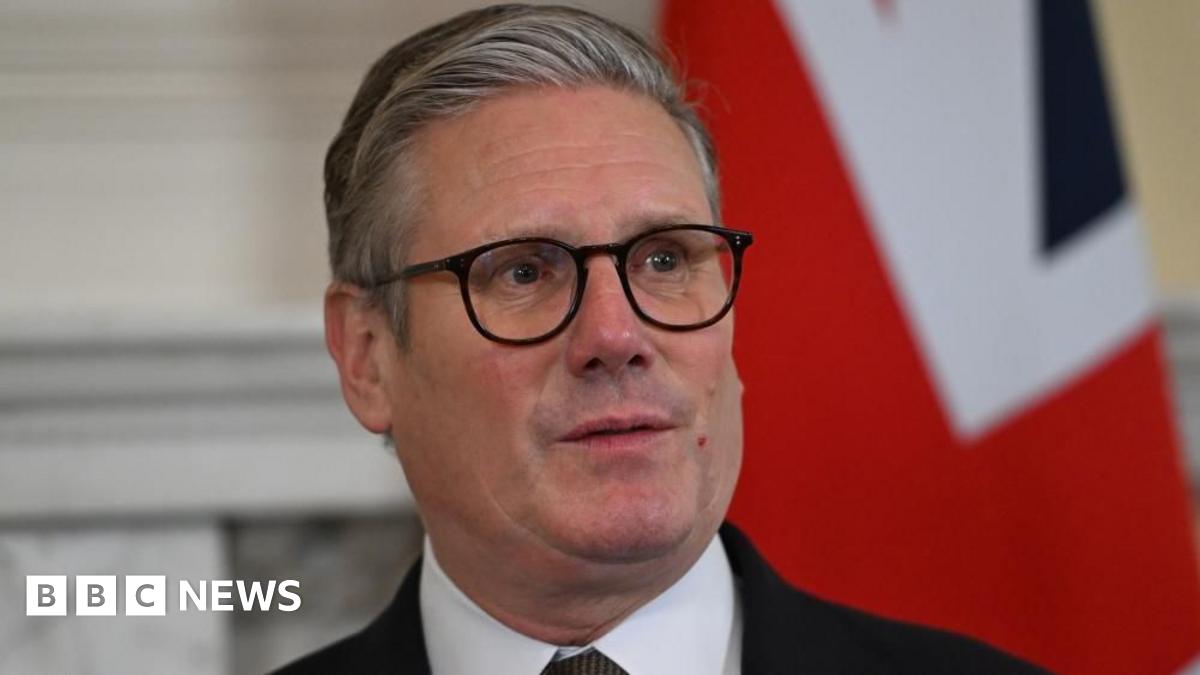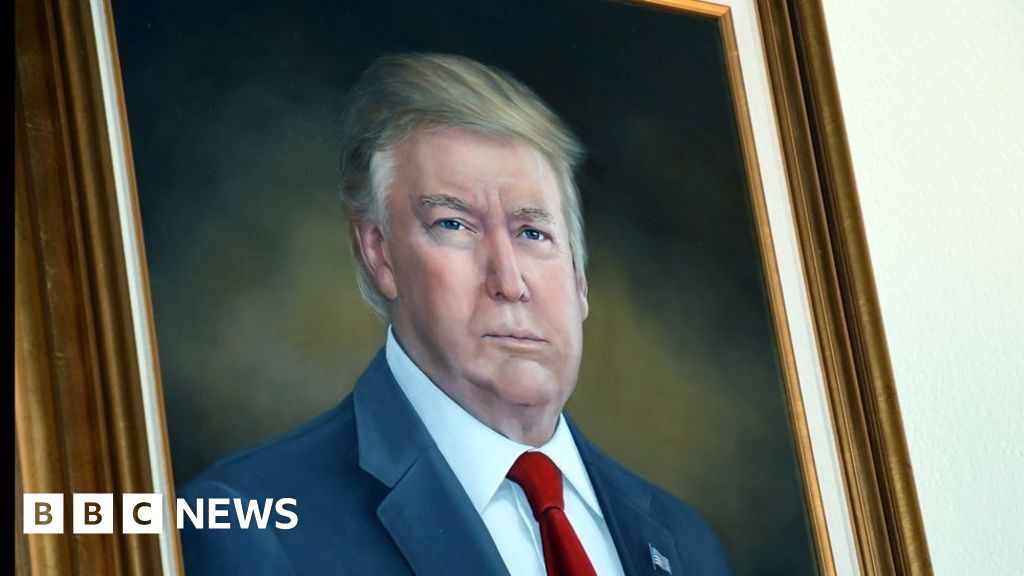Other Countries Seem To Like Tariffs… So Why Are People Opposed To Trump’s Tariffs?

April 3, President Donald Trump announced it as “Liberation Day.” And by that he meant we were going to be liberated from asymmetrical tariffs of the last 50 years. And it was going to inaugurate a new what he called “golden age” of trade parity, greater investment in the United States, but mostly, greater job opportunities and higher-paying jobs for Americans.
And yet, the world seemed to erupt in anger. It was very strange.
Even people on the libertarian right and, of course, the left were very angry. The Wall Street Journal pilloried Donald Trump.
But here’s my question.
China has prohibitive tariffs, so does Vietnam, so does Mexico, so does Europe.
So do a lot of countries.
So does India.
But if tariffs are so destructive of their economies, why is China booming?
How did India become an economic powerhouse when it has these exorbitant tariffs on American imports?
How did Vietnam, of all places, become such a different country even though it has these prohibitive tariffs?
Why isn’t Germany, before its energy problems, why wasn’t it a wreck? It’s got tariffs on almost everything that we send them.
How is the EU even functioning with these tariffs?
I thought tariffs destroyed an economy, but they seem to like them. And they’re angry that they’re no longer asymmetrical.
Apparently, people who are tariffing us think tariffs improve their economy. Maybe they’re right. I don’t know.
The second thing is, why would you get angry at the person who is reacting to the asymmetrical tariff and not the people who inaugurated the tariff?
Why is Canada mad at us when it’s running a $63 billion surplus and it has tariffs on some American products at 250%. Doesn’t it seem like the people who started this asymmetrical—if I could use the word—trade war should be the culpable people, not the people who are reluctantly reacting to it?
Sort of like Ukraine and Russia. Russia invaded Ukraine. Do we blame Ukraine for defending itself and trying to reciprocate? No, we don’t. We don’t blame America because it finally woke up and said, “Whatever they tariff us we’re gonna tariff them.”
Which brings up another question: Are our tariffs really tariffs?
That is, were they preemptive? Were they leveled against countries that had no tariffs against us? Were they punitive? No. They’re almost leveled on autopilot. Whatever a particular country tariffs us, we reciprocate and just mirror image them. And they go off anytime that country says, “It was a mistake. We’re sorry. You’re an ally. You’re a neutral. We’re not going to tariff this American product.” And we say, “Fine.” Then the autopilot ceases and the automatic tariff ends. In other words, it’s their choice, not ours. We’re just reacting to what they did, not what we did.
Couple of other questions that I’ve had. We haven’t run a trade surplus since 1975—50 years. So, it wasn’t suddenly we woke up and said, “It’s unfair. We want commercial justice.” No. We’ve been watching this happen. For 50 years it’s been going on. And no president, no administration, no Congress in the past has done anything about it. Done anything about what? Leveling tariffs on our products that we don’t level on theirs.
It was all predicated in the postwar period. We were so affluent, so powerful—Europe, China, Russia were in shambles—that we had to take up the burdens of reviving the economy by taking great trade deficits. Fifty years later, we have been deindustrialized. And the countries who did this to us, by these unfair and asymmetrical tariffs, did not fall apart. They did not self-destruct. They apparently thought it was in their self-interest. And if anybody calibrates the recent gross domestic product growth of India or Taiwan or South Korea or Japan, they seem to have some logic to it.
There’s a final irony.
The people who are warning us most vehemently about this tariff quote the Smoot-Hawley Act of 1930. But remember something, that came after the onset of the Depression—after. The stock market crashed in 1929. That law was not passed until 1930. It was not really amplified until ’31.
And here’s the other thing that they were, conveniently, not reminded of: We were running a surplus. That was a preemptive punitive tariff, on our part, against other countries. We had a trade surplus. And it was not 10% or 20%. Some of the tariffs were 40% and 50%. And again, it happened after the collapse of the stock market.
In conclusion, don’t you find it very ironic that Wall Street is blaming the Trump tariffs for heading us into a recession, if not depression, when the only great depression we’ve ever had was not caused by tariffs but by Wall Street?
As a follow up to Victor Davis Hanson’s brief essay, hedge fund billionaire Bill Ackman commented on X that while Hanson made a compelling case for the Trump tariff strategy, he gets one issue incorrect. He describes the Trump tariffs as reciprocal and proportional to those other nations have assessed on us.
In actuality, the Trump tariffs were set at levels substantially above, and in many cases, at a multiple of the counterparty country’s tariff levels.
Initially, the market responded favorably, up more than one percent when Trump referred to ‘reciprocal tariffs’ in his Rose Garden speech. It was only when he put up a chart showing the actual tariffs that the markets plunged.
We can divine from this response that market participants are supportive of the administration using tariffs as a tool to lower the asymmetrical tariffs of our trading partners, but are highly concerned with tariff levels set well in excess of a corresponding country’s levels.
So why did Trump take this approach?
The answer goes back to ‘The Art of the Deal.’ Trump’s negotiating style is to ask for the moon and then settle somewhere in between. It has worked well for him in the past so he is using the same approach here.
The market’s response is due to the fear that if this strategy fails and the tariffs stay in place, they will plunge our economy into a recession. And we don’t need to wait for failure as it doesn’t take long for a high degree of uncertainty to cause economic activity to slow.
Press reports today have said that all deals are now on hold. This is not surprising. Capitalism is a confidence game. Uncertainty is the enemy of business confidence.
The good news is that a number of countries have already approached the negotiating table to make tariff deals, which suggests that Trump’s strategy is beginning to work.
Whether this is enough to settle markets next week is unknowable, but we will find out soon.
The idea that Wall Street and investors are opposed to the President’s efforts to bring back our industrial base by leveling the tariff playing field is false.
Our trading partners have taken advantage of us for decades after tariffs were no longer needed to help them rebuild their economies after WWII.
The market is simply responding to Trump’s shock and awe negotiating strategy and factoring in some probability that it will fail or otherwise lead to an extended period of uncertainty that will sink us into a recession.
The market decline has been compounded by losses incurred at so-called pod shops and other highly levered market participants that have been forced to liquidate positions as markets have declined.
Stocks of even the best companies are now trading at the cheapest valuations we have seen since Covid. If the President makes continued progress on tariff deals, uncertainty will be reduced, and the market will begin to recover.
As more countries come to the table, those that have held out or have reciprocated with higher tariffs will have growing concerns about being left behind. This should cause more countries to negotiate deals until we reach a tipping point where it is clear that the strategy will succeed. When this occurs, stocks will soar.
Trump’s strategy is not without risk, but I wouldn’t bet against him.
The more that markets support the President and his strategy, the higher the probability that he succeeds, so a stable hand on the trading wheel is a patriotic one.
An important characteristic of a great leader is a willingness to change course when the facts change or when the initial strategy is not working. We have seen Trump do this before. Two days in, however, it is much too early to form a view about his tariff strategy.
Trump cares enormously about our economy and the stock market as a measure of his performance. If the current strategy works, he will continue to execute on it. If it needs to be tweaked or changed, I expect he will make the necessary changes. Based on the early read, his strategy appears to be working.
Let’s help him succeed. It’s the least we can do.
Loading…
